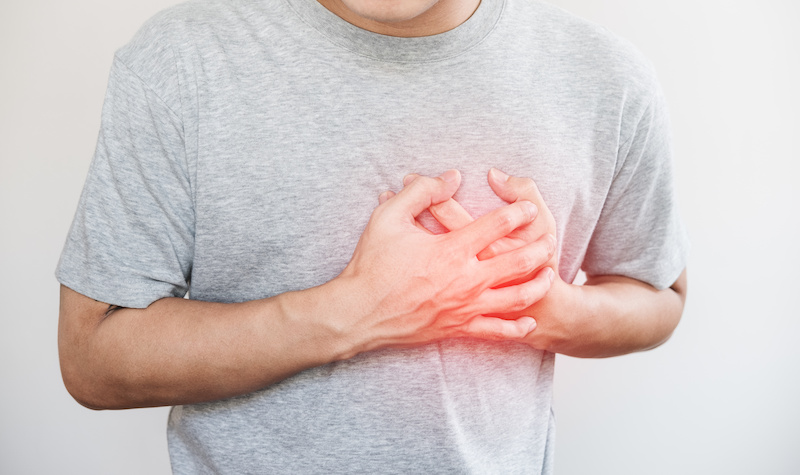Why Jeevandeep Ayurveda for treating “Heart Disease”?
- Helps to reduce the fat level and high cholesterol with a mixture of herbs.
- Helps you live a tension free from mind and body.
- Provide strength to the heart muscles.
- Remedies to realize the muscles for a better heart.
Know about “Heart disease”
 A condition that affects the blood vessels or the heart. Smoking, high blood pressure, high cholesterol, a poor diet, insufficient exercise, and obesity may all raise one's chance of developing various cardiac problems.
A condition that affects the blood vessels or the heart. Smoking, high blood pressure, high cholesterol, a poor diet, insufficient exercise, and obesity may all raise one's chance of developing various cardiac problems.
Coronary artery disease, or narrowed or blocked coronary arteries, is the most prevalent kind of heart disease and can cause chest discomfort, heart attacks, or strokes.
Other cardiac conditions include endocarditis, congestive heart failure, irregular heartbeat, and congenital heart disease (inflamed inner layer of the heart). Likewise known as cardiovascular disease.
Coronary Artery Disease : The most typical kind of heart illness is coronary artery disease, sometimes called coronary heart disease.
It happens when plaque builds up in the arteries that carry blood to the heart. They get harder and narrower as a result. Cholesterol and other materials can be found in plaque.
As a result, the heart gets less oxygen and nutrients from the blood supply. Heart failure and arrhythmias are possible as a result of the weakening of the heart muscle over time.
Congenital Heart Defects : A person born with a congenital heart defect has a heart defect. Congenital cardiac abnormalities can in a variety of forms. Congenital heart illness can entail substantial anatomical difficulties, such as the lack of a ventricle or concerns with odd connections between the heart's main arteries.
Arrhythmia : An irregular heartbeat is called an arrhythmia. It happens when the electrical impulses that regulate the heartbeat aren't functioning properly. As a result, the heart may beat abnormally or excessively. The heart chambers enlarge in dilated cardiomyopathy, which causes the heart muscle to expand and lose thickness.
Myocardial Infarction : Myocardial infarction, sometimes known as a heart attack, happens when the blood supply to the heart is cut off. The cardiac muscle may suffer partial damage or perhaps be destroyed. In a coronary artery, plaque, a blood clot, or both are the most frequent causes of heart attacks.
Heart Attack : Heart failure occurs when a person's heart continues to beat, but not as well as it should. Congestive heart failure is a kind of heart failure that can be brought on by issues with the heart's pumping or relaxing mechanisms.
Regurgitation of the Mitral Valve : This occurrence takes place when the heart's mitral valve does not seal tightly enough, allowing blood to flow back into the heart. Blood cannot flow through the heart or body effectively as a consequence, which can place strain on the heart's chambers. Heart failure may develop over time if the heart enlarges.
Mitral Valve Stenosis : This occurs when the mitral valve's flaps do not correctly seal. Rather, they enlarge the left atrium. Heart disturbances may result from this. Although mitral valve prolapse seldom poses a life-threatening concern, certain patients may require medical attention.
Aortic Stenosis : The pulmonary valve is bulky or fused and does not open properly in aortic stenosis. This makes it difficult for the heart to pump blood into the aorta from the left ventricle. It may develop over time as a result of calcium deposits or scarring, or it may be present at birth due to congenital defects of the valve.
Why Choose Jeevandeep Ayurveda
31
YEARS OF EXPERIENCE
180
HERBAL PRODUCTS
27000
PATIENT TREATED
- Overweight.
- Pale grey or blue skin or lips (cyanosis).
- Swelling around the eyes, in the tummy, or in the legs.
- Chest discomfort or discomfort.
- Dizziness.
- Syncope or fainting or almost fainting.
- Racing heart.
- Light-headedness.
- Rapid heart rate (tachycardia).
- Breathing difficulty.
- Slow heartbeat (bradycardia).
- Dilated cardiomyopathy.

Why one should not delay treatment for “heart disease”?
- Heart Attack : One of the most frequent side effects of heart disease is this. When the heart cannot pump enough blood to fulfill the demands of the body, heart failure results.
- Chest Pains : If a blood clot becomes lodged in a blood artery leading to the heart, a heart attack might result.
- Stroke : An ischemic stroke can be brought on by the same risk factors that cause heart disease. When the arteries leading to the brain are constricted or obstructed, this form of stroke occurs. Brain blood flow is inadequate. Because brain tissue starts to die shortly after a stroke, it is a medical emergency.
- Aneurysm : An arterial wall bulge is known as an aneurysm. If an aneurysm bursts, you might experience life-threatening internal bleeding.
- Peripheral Arteries : In this disease, there is insufficient blood flow to the arms or legs, typically the legs. This results in symptoms, chief among them walking-related leg discomfort (claudication). Peripheral artery disease can result from atherosclerosis.
- Unusual Cardiac Arrest : The abrupt loss of respiration, awareness, and heart function is referred to as sudden cardiac arrest. A medical emergency is a sudden heart arrest. Sudden cardiac death occurs if the condition is not quickly treated.



